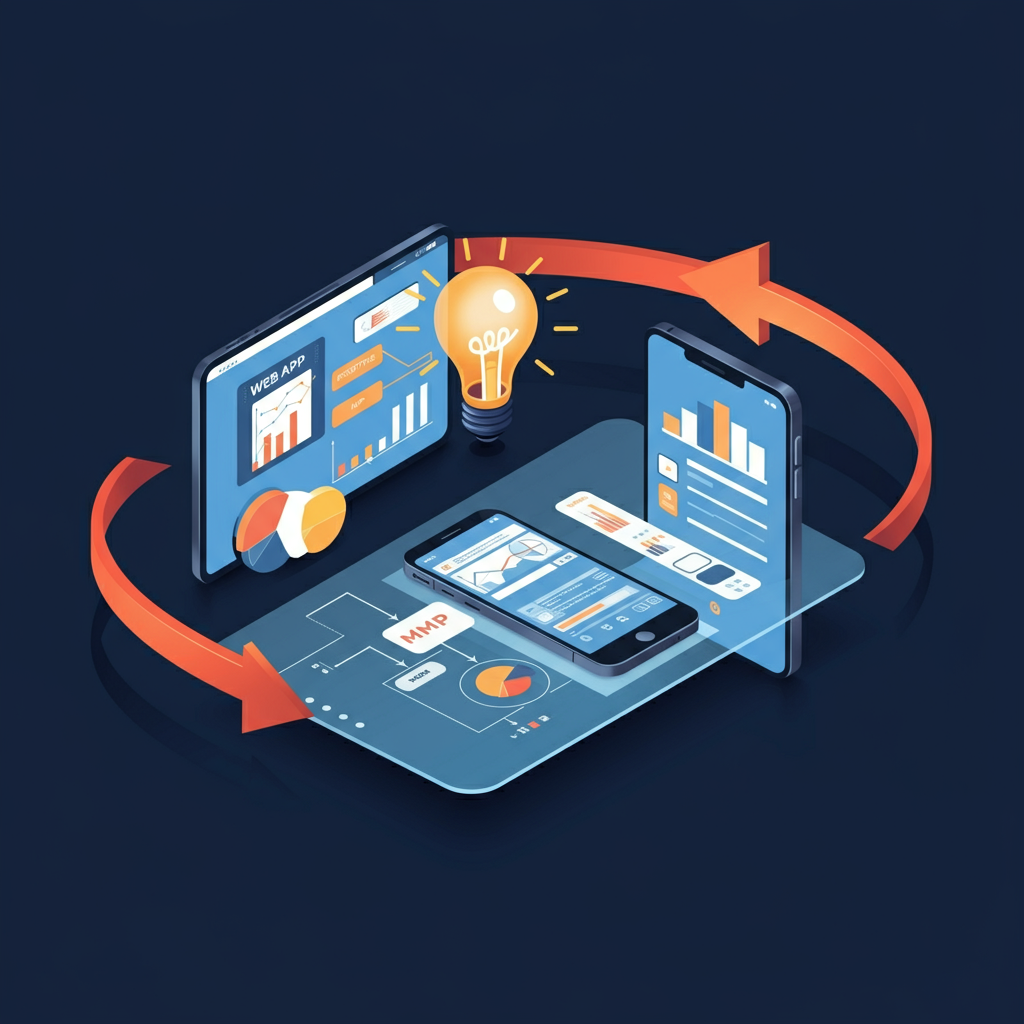Remote work is no longer a side option for software engineers. It is now a standard path. Remote software engineer jobs are growing at record speed. Companies hire across borders, and skilled developers no longer need to move for work. This shift creates new opportunities for engineers and new options for employers.
The United States now leads in hiring remote engineers for full-time and contract roles. Teams are no longer limited by city or state. They focus on skills and results. This approach is becoming the standard for modern software projects.
Forward-looking companies such as OCTAGT already use this model. At OCTAGT, we build custom software with distributed teams. We also provide staff augmentation to match skilled engineers with U.S. companies. By combining talent and process, we help clients grow faster in a remote-first market.
Evolution of Remote Software Engineer Jobs
A decade ago, remote software engineering meant freelance contracts and side projects. Companies hired developers for small tasks but kept core projects in-house. Few trusted remote teams with large systems or critical platforms.
That view has changed. Advances in cloud tools, video calls, and project tracking made it easier to manage remote staff. The pandemic pushed this shift forward. Businesses had to rely on distributed teams to keep projects moving. Many saw that work quality did not suffer. In many cases, it improved.
Today, full-time distributed teams are common. Remote engineers are treated as core staff, not outside help. Employers focus on results, not office presence. This change has made the remote model the new standard in software development.
At OCTAGT, we see this change through our staff augmentation services. U.S. companies often ask us to provide skilled engineers who can join existing teams right away. These engineers work remotely but integrate fully with client processes. The result is simple: clients get the expertise they need without location limits.

Key Trends Shaping the Future
Global talent pool expansion
Companies no longer hire only within their city or state. They now look across borders for skilled engineers. This change gives employers access to rare skills and faster hiring. It also gives engineers more choices, regardless of where they live.
OCTAGT supports this shift by connecting U.S. firms with remote engineers through staff augmentation. Our clients build strong teams without being limited by geography.
Rise of AI and automation
AI tools now handle testing, bug detection, and even parts of coding. They help engineers finish tasks faster and with fewer errors. However, and this is very important, AI does not replace people. Employers expect developers to know how to guide and use these tools.
At OCTAGT, we integrate automation into client systems. This allows teams to focus on design and problem solving while AI handles routine work.
Flexible work models
Some companies use hybrid schedules while others run fully remote teams. What matters most is output, not where engineers sit. This flexibility improves hiring and retention.
OCTAGT helps clients adapt by building processes that support both hybrid and remote-first teams. Our methods ensure collaboration stays strong, regardless of location.
Security and compliance focus
Remote work brings new security concerns. Engineers often handle sensitive data outside office networks. Industries such as healthcare and finance demand strict compliance with rules like HIPAA or PCI DSS.
OCTAGT addresses this by designing custom security protocols for remote projects. We make sure remote engineers can work safely with regulated data.
Cloud-native development
Most new systems are built in the cloud. Employers seek engineers who know serverless platforms, DevOps tools, and Kubernetes. These skills are no longer optional. They are core to modern development.
OCTAGT delivers cloud-native solutions for clients across industries. Our engineers build scalable apps that match today’s demand for speed and reliability.
Opportunities for Software Engineers
Higher earning potential
Remote hiring opens the door to global salaries. An engineer living in a smaller city can now earn rates set by companies in major U.S. hubs. This often means higher income without the cost of relocation. Many engineers see remote roles as the best path to financial growth.
OCTAGT helps engineers reach these opportunities by connecting them with U.S. companies that pay for proven skill, not location.
Access to more diverse roles
Remote work broadens the range of projects. Engineers can join startups, large enterprises, or cross-industry projects. One role may involve healthcare apps, while another may focus on logistics or automation. This variety makes careers more dynamic and rewarding.
At OCTAGT, our client work reflects this diversity.
We build scheduling tools, route planning platforms, and industrial automation systems. Engineers who join our teams gain exposure to many industries.
Work-life balance and flexibility
Remote jobs let engineers design careers around lifestyle. They avoid long commutes and have more control over daily schedules. Some choose to live near family, while others travel while working. This freedom improves personal well-being and often boosts productivity.
Employers see the benefits too. Flexible engineers are more engaged and more likely to stay. OCTAGT supports this balance by setting clear expectations and processes that give engineers space to manage work effectively.
Career growth
Remote roles now include leadership positions. Companies need technical leads and managers who can guide distributed teams. This creates a path for engineers to grow into senior roles without moving to headquarters. In addition, specialized fields like AI, cybersecurity, and cloud systems create new career niches.
OCTAGT supports this growth by matching engineers with projects that demand advanced skills. Our clients often look for developers who can step into leadership and handle complex technical challenges.

Challenges to Consider
Time zone management and async communication
Remote teams often span multiple time zones. A developer in California may work with a colleague in India. Live meetings can be difficult. To stay efficient, teams must rely on async communication. This means clear written updates, well-documented code, and tools that track progress.
OCTAGT helps clients solve this by setting up workflows and tools that support async work. Our engineers use agile methods to keep projects moving across time zones.
Competition in a global job market
Remote hiring widens opportunities, but it also increases competition. Engineers now compete with peers from every region. Employers compare skills, portfolios, and communication ability on a global scale. This makes quality and reliability key factors in hiring.
Through staff augmentation, OCTAGT ensures U.S. companies get engineers who meet these high standards. We focus on talent that delivers both strong skills and proven dependability.
Need for continuous upskilling
Technology never stands still. Skills in AI, cybersecurity, and cloud systems are now in demand. Engineers who stop learning quickly fall behind. Employers want candidates who show active growth through certifications, projects, and open-source work.
OCTAGT supports ongoing learning by engaging engineers in projects that use the latest platforms and tools. This gives them hands-on experience that keeps their skills sharp.
Building trust and visibility in remote teams
Remote engineers do not have the daily face-to-face presence of an office. Trust comes from delivering on time, writing clear code, and keeping communication open. Visibility also matters.
Team members who share progress and contribute actively are noticed and valued.
OCTAGT prepares engineers for this by promoting accountability and transparency in all client projects. Our processes ensure remote staff integrate well into teams and earn trust quickly.
How Engineers Can Prepare for the Future
The shift toward a global, remote, and highly competitive software engineering landscape means that professionals must be proactive in shaping their careers. Rather than waiting for opportunities to come, engineers who deliberately position themselves with the right skills, visibility, and professional habits will thrive.
1. Develop in-demand skills
- AI & Machine Learning: Companies across industries are investing in AI-driven products and tools. Engineers who understand model training, data pipelines, and AI integration into applications will be highly sought after.
- Cloud & DevOps: Cloud-native development is no longer optional. Skills in AWS, Azure, GCP, Kubernetes, Docker, and serverless architecture are essential.
- Cybersecurity: With remote work expanding attack surfaces, engineers who understand secure coding practices, identity management, and compliance frameworks (like GDPR, HIPAA, or PCI DSS) will stand out.
- Full-stack adaptability: The ability to move between frontend, backend, and infrastructure roles makes engineers more versatile in global projects.
2. Strengthen remote-first communication and collaboration habits
- Clarity in asynchronous communication: Writing clear, detailed documentation, GitHub issues, or Slack updates prevents misunderstandings across time zones.
- Video-first mindset when needed: Knowing when to switch from async to face-to-face calls helps resolve blockers quickly.
- Cultural sensitivity: Remote teams span continents, so engineers who respect different working styles, cultural norms, and communication patterns can collaborate more effectively.
3. Build a strong online portfolio and GitHub presence
- Showcase projects: An active GitHub or GitLab profile demonstrates coding style, contributions, and problem-solving approach.
- Personal website or blog: Sharing case studies, tutorials, or open-source contributions helps engineers establish credibility.
- Open-source involvement: Contributing to well-known repositories or maintaining a niche tool builds visibility and attracts recruiter attention.
4. Network in global tech communities
- Join online communities: Platforms like Dev.to, Hashnode, Stack Overflow, or Reddit developer groups provide visibility and learning opportunities.
- Conferences and meetups (virtual or hybrid): Speaking at or attending remote-first tech conferences expands professional networks.
- Mentorship and peer exchange: Finding mentors across borders or mentoring junior developers strengthens both technical and leadership skills.
Simply put, engineers who treat themselves as global professionals, upskilling continuously, communicating effectively, showcasing their work, and networking widely, will be best positioned for long-term success.
Discover our services
Explore the full potential of bespoke software development in driving innovation and growth.
Learn about innovative digital tools powering the future of healthcare technology.
Find out which skills are in highest demand for the best remote technology positions.
To wind up, the future of remote software engineering is being shaped by global hiring, advances in AI and cloud technologies, and evolving work models. For engineers, this means opportunities are expanding beyond borders, but so are the expectations. Companies now look for professionals who can deliver technical excellence while thriving in distributed, multicultural teams.
The key takeaway is simple: adaptability, continuous learning, and proactive career development will define success. Engineers who stay ahead by mastering in-demand skills, communicating effectively in remote-first environments, and showcasing their work online will have the strongest advantage in a competitive global market.
What lies ahead is not just more jobs, it’s more diverse opportunities: from joining international startups, to leading enterprise-scale projects, to carving out niche expertise in AI, cloud, or cybersecurity. But these opportunities will only be available to those who prepare.
Now is the time to act. Start refining your technical skills, build visibility through projects and online contributions, and connect with the global tech community. The shifts in the job market are already underway, and those who embrace change today will shape the future of remote software engineering jobs tomorrow.
 October 15, 2025
October 15, 2025 
